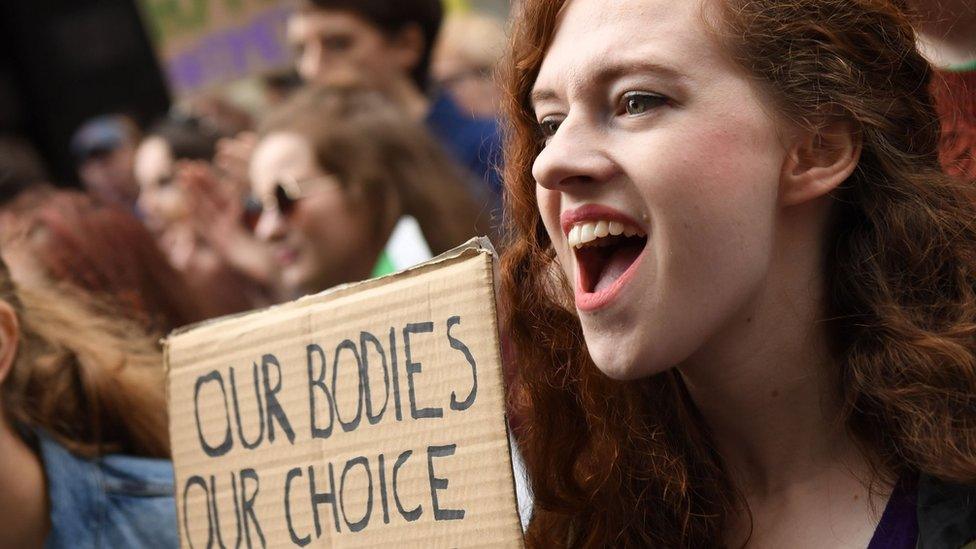Ireland abortion referendum: PM hails 'quiet revolution'
- Published
'Quiet revolution ' - Irish PM Leo Varadkar
The Irish prime minister has hailed his country's "quiet revolution" as early results point to a "resounding" vote for overturning the abortion ban.
Leo Varadkar was speaking after exit polls suggested a landslide vote in favour of reforming the law.
"The people have spoken. They have said we need a modern constitution for a modern country," he said.
Exit polls suggest about 69% voted to repeal a part of the constitution that effectively bans terminations.
Mr Varadkar, who campaigned in favour of liberalisation, said: "What we've seen is the culmination of a quiet revolution that's been taking place in Ireland over the past 20 years."
The taoiseach (prime minister) added that Irish voters "trust and respect women to make the right choices and decisions about their own healthcare".
Ireland votes in abortion referendum
Those taking part in Friday's referendum were asked whether they wanted to repeal or retain a part of the constitution known as the Eighth Amendment, which says an unborn child has the same right to life as a pregnant woman.
A vote in favour of repeal paves the way for the Dáil (Irish Parliament) to legislate for change which would see the introduction of a much more liberal regime.
Currently, abortion is only allowed when a woman's life is at risk, but not in cases of rape, incest or fatal foetal abnormality.
Mr Varadkar said he hoped to have a new abortion law enacted by the end of this year.
'Continue to protest'
Counting began at 09:00 local time and the confirmed result is expected by Saturday evening.
However, the exit poll run by Irish broadcaster RTÉ suggested 69.4% in favour of the Yes side and 30.6% for No.
In Dublin, 79% of people voted for repeal, according to the RTÉ poll.
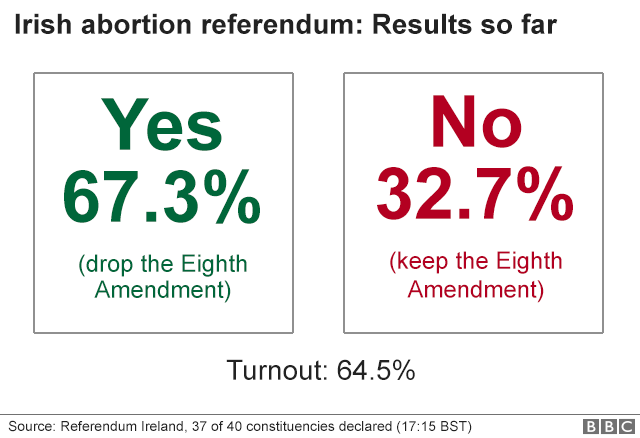
An exit poll released by The Irish Times points to 68% Yes to 32% for No.

Hours after the polls were published, one of the main anti-abortion campaigns conceded it had lost the vote.
The Save The 8th campaign described the result as a "tragedy of historic proportions".
"The unborn child no longer has a right to life recognised by the Irish state," said its spokesman John McGuirk.
However, he vowed that No campaigners would continue to protest, "if and when abortion clinics are opened in Ireland".
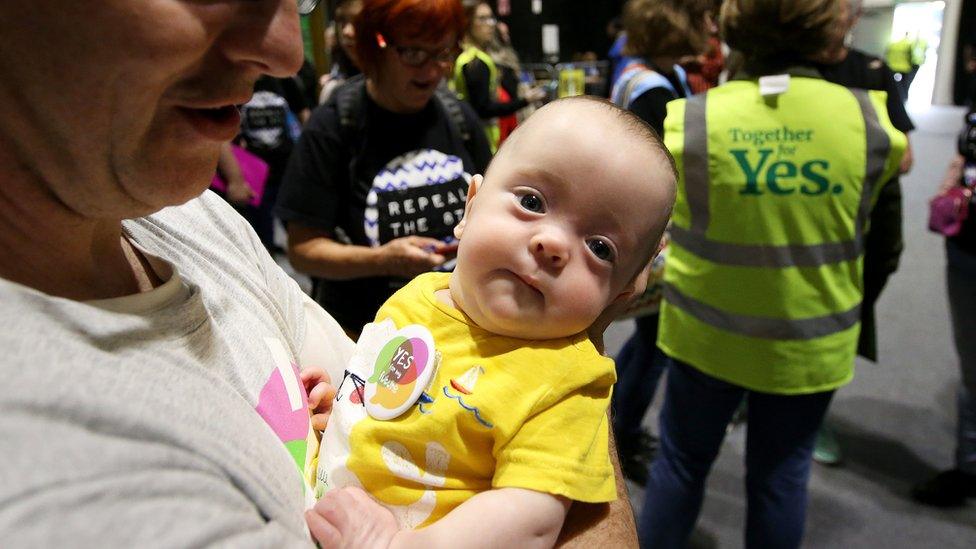
Young and old have been turning out at count centres
The leader of the main Irish opposition party, Micheál Martin of Fianna Fáil, said the vote was the "dawn of a new era".
He said he had wrestled with the issue, but added the people had made the right decision and it would mean better care for women in Irish hospitals.
Sinn Féin president Mary Lou McDonald, whose party campaigned in favour of a Yes vote, said: "We have without doubt done right by Irish women for this generation and many to come."
Amnesty International hailed the result as a "momentous win for women's rights" that "marks the beginning of a new Ireland".
Northern Ireland's abortion laws
The vote will have repercussions for women north of the border, as Northern Ireland has the strictest abortion laws in the UK.
Cases of rape, incest and fatal foetal abnormality are not considered grounds for a legal termination.
The UK's Women and Equalities Minister Penny Mordaunt said the predicted landslide vote gave "hope" to Northern Ireland.
Amnesty's Northern Ireland campaigns manager, Grainne Teggart, called for abortion reform across the whole island.
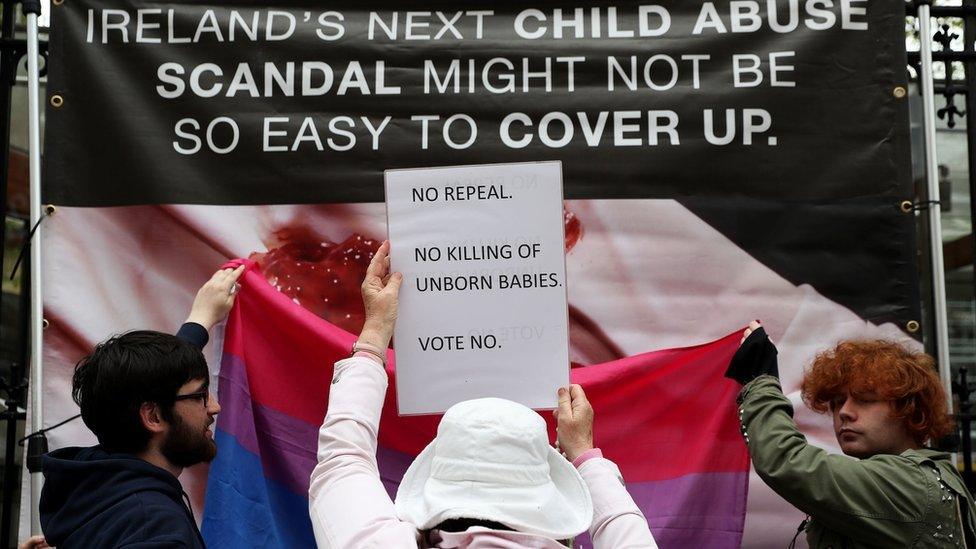
It has been an emotive campaign with harrowing stories on both sides
"It's hypocritical, degrading and insulting to Northern Irish women that we are forced to travel for vital healthcare services but cannot access them at home," she said.
"We cannot be left behind in a corner of the UK and on the island of Ireland as second-class citizens."
Former Northern Ireland health minister Jim Wells said the expected result was a "grave threat" to the unborn child in Northern Ireland.
Mr Wells, a Democratic Unionist Party (DUP) politician, claimed it was "inevitable" that abortion clinics would be set up in border towns to "promote their services to Northern Ireland women".
"It will be much easier to terminate a child's life if this can be done at a clinic in Dundalk or Letterkenny rather than flying to London or Manchester," he added.
- Published26 May 2018
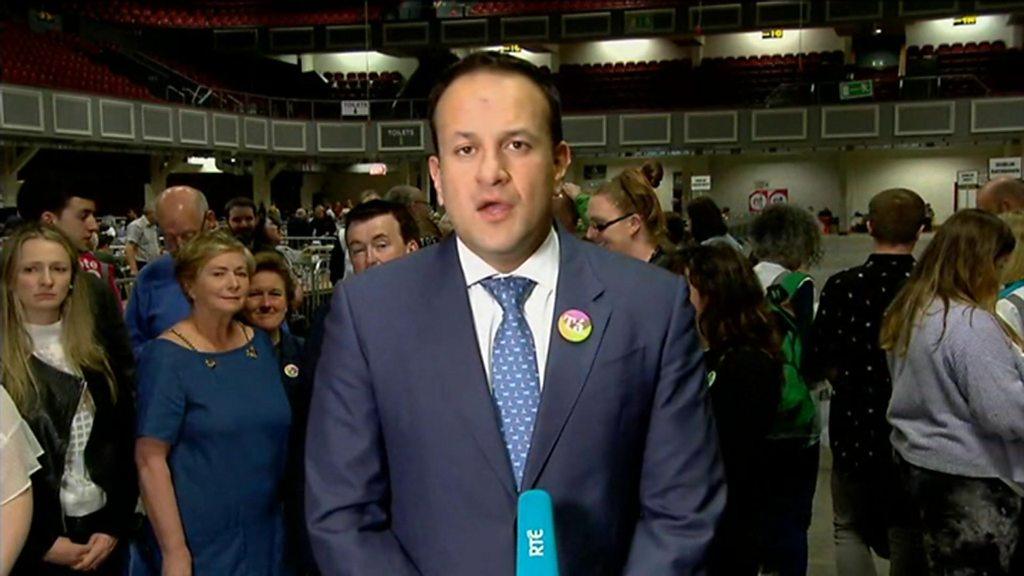
- Published26 May 2018
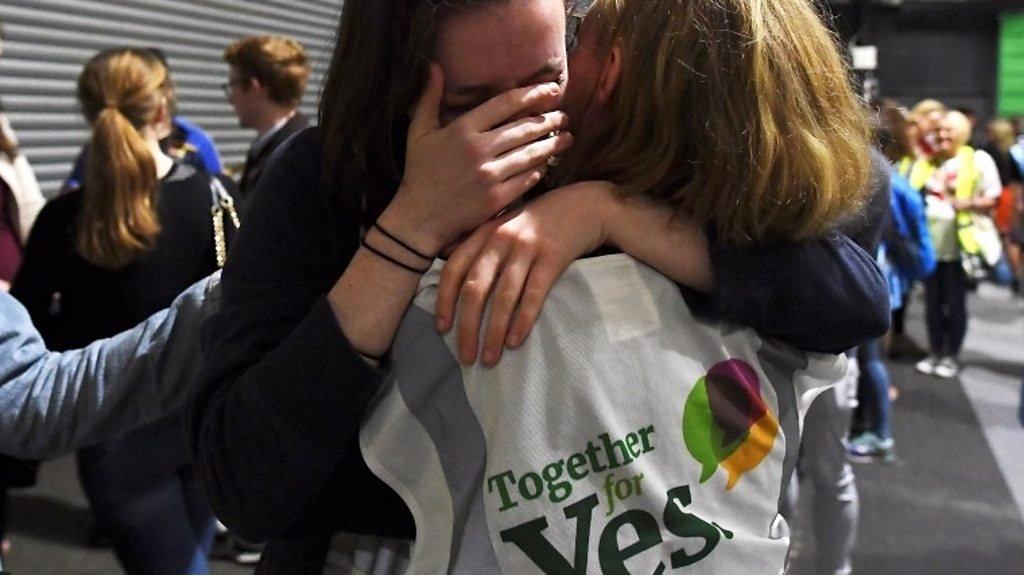
- Published24 May 2018
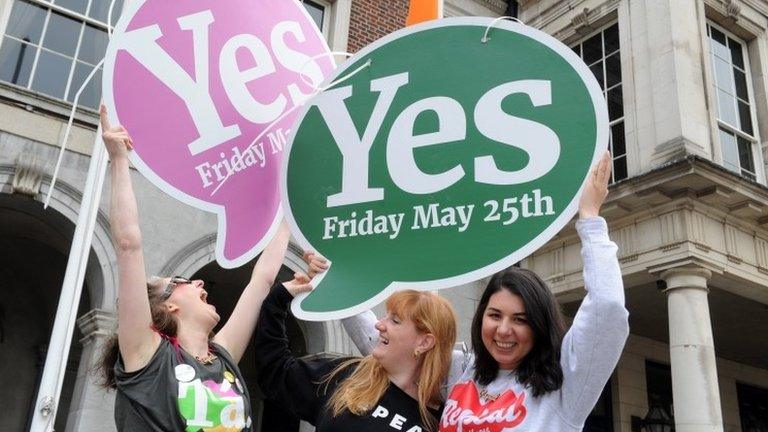
- Published26 May 2018
